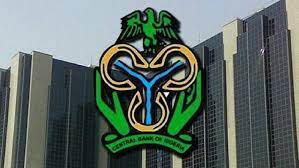The Central Bank of Nigeria (CBN) announced that Deposit Money Banks (DMBs) that use any form of technology which distorts images and data while it is being sent during the process of cheque truncation would be liable to penalties beginning on November 1st, 2023.
This information was made public by the apex bank in a circular that was sent to all deposit money banks (DMBs). The letter was titled ‘The Revised Nigeria Cheque Standards (NCS) and Cheque Printers Accreditation Scheme (NICPAS): MICR Reject’ and was signed by Sam Okejere, director of the banking services department.
The term “MICR Line” refers to the numbers that are printed in magnetic ink on a cheque in accordance with the Nigeria Cheque Standards. These numbers may include the bank routing number, account number, cheque number, cheque amount, and various other pieces of information.
On September 18, 2018, the Nigerian Cheque Standards and the Nigeria Cheque Printers Accreditation Scheme, version 2.0, were both published by the Central Bank of Nigeria in an effort to enhance the level of productivity and protection provided by the Nigeria Clearing System.
The Central Bank of Nigeria (CBN) issued a directive to the nation’s banks, instructing them to communicate with their personalizers in order to revalidate the MICR code-line details for correctness in compliance with the NCS and NICPAS version 2.0. This was done in an effort to lessen the increase in MICR rejection.
Read also: Tinubu nominates Cardoso as new CBN Governor
Statement released by the CBN
Part of the circular reads, “It has come to our notice that MICR rejects have been on the increase and in furtherance of the Bank’s effort to reduce the number, Deposit Money Bank (DMBs) are hereby directed to contact their personalizers and reiterate the need to revalidate the MICR code-line details for correctness in accordance with the NCS and NICPAS version 2.0.”
“Furthermore, both the presenting and receiving banks should also thoroughly examine their in-house cheque processing equipment to ensure that they are properly calibrated and supervised to eliminate distortion of image and data being transmitted during the cheque truncation process.
“Please note that the bank will monitor compliance with the provision of this circular, and any bank with MICR rejection starting from November 1, 2023, would be penalized in accordance with the Sanctions Grid.”
The Central Bank of Nigeria (CBN) made an announcement in January 2021 stating that NICPAS version 2.0 would begin on April 1, 2021 and that the NCS/NICPAS 2.0 sanction grid would be active on the same date.
CBN warns against international money transfer to Russia, Cameroun, others
About CBN
The CBN Act of 1958 established the Central Bank of Nigeria as Nigeria’s central bank and apex monetary authority. The CBN began operations on July 1, 1959, after it was given the right to do so by the CBN Act.
Through the effective, efficient, and transparent implementation of monetary and exchange rate policy and administration of the financial sector, the Central Bank of Nigeria intends to be proactive in establishing a stable foundation for the economic development of Nigeria. This would be accomplished by the bank’s management of the financial sector.
In Nigeria, the Central Bank of Nigeria (CBN) is responsible for the issuance of currency that is legal tender, the maintenance of external reserves to protect the international value of the legal tender currency, the promotion of a sound financial system in Nigeria, and acting as Banker while providing the Federal Government with economic and financial advice.
The Central Bank of Nigeria (CBN) serves as the current account administrator for deposit money banks. Additionally, it offers clearinghouse facilities, which are utilised in the processing and settlement of instruments provided by banking institutions. In a similar vein, it performs functions related to trade finance on behalf of the clients of banks.




